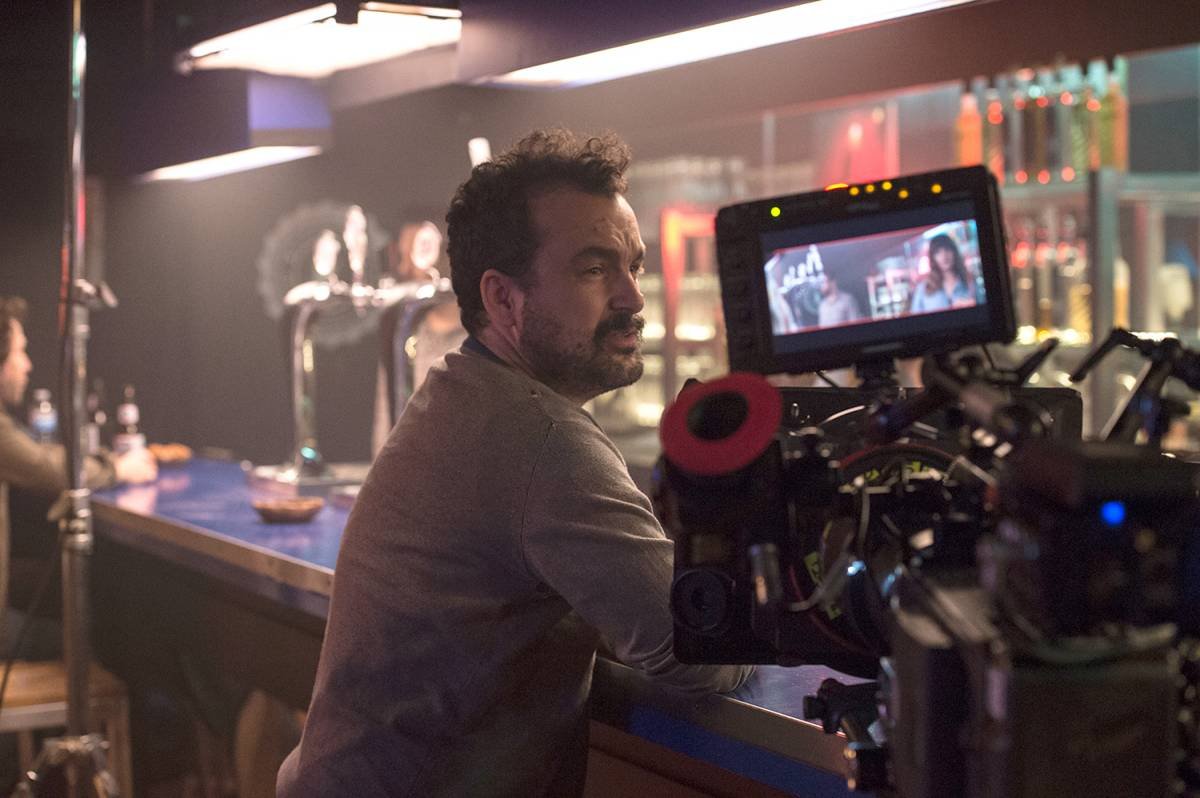In Colossal, opening Friday (April 21), Jason Sudeikis gets to play the world’s biggest asshole. No, really—whenever his character gets drunk, an enormous robot appears and starts destroying buildings and killing hordes of people half a world away in Seoul, Korea. It’s a condition he shares with Anne Hathaway’s self-loathing boozehound, Gloria, who manifests as a huge reptilian kaiju.
Colossal, then, is not the most conventional take you’re likely to encounter on the dangers of overimbibing. Nor does it provide us with anything like the kind of performance we’re used to seeing from the generally likable former SNL player. Indeed, Sudeikis’s Oscar is a very, very dark man. “He’s really scary, but don’t you feel like all comedians, male or female, have this evil side?” writer-director Nacho Vigalondo asks in a call to the Georgia Straightfrom Los Angeles. “It doesn’t take a lot of effort to find the evil in Bill Murray, for example. Wouldn’t it be great if a film had Tom Hanks as a villain? That would be amazing.”
Notwithstanding that both of those actors have been cast as villains—Murray in the fine Mad Dog and Glory and Hanks in the not-so-amazing The Ladykillers(and let’s not forget Albert Brooks in Drive)—we take the point, and we share the Spanish filmmaker’s enthusiasm when he states that “giving a villain to an actor who has played a bunch of villains makes you feel safe. But giving a villain to a charming comedian is much more exciting.” Casting included, the whole of Vigalondo’s project is impressively risky, given his status as the critics’ darling behind super low-budget indie faves Timecrimes(2007) and Extraterrestrial (2011), not to mention his Oscar-nominated short “7:35 in the Morning” or a wild segment in the anthology The ABCs of Death, “A Is for Apocalypse”, that the rest of the film, with just a few exceptions, couldn’t hope to match).
Colossal sees the 40-year-old director take a kaiju-size leap into the world of Hollywood A-listers thanks to Hathaway’s unexpected affection for the script, which was partly informed, the director quietly revealed in a Reddit AMA, by the pulp visionary Philip K. Dick. (“It’s not about the sci-fi devices he uses in his tales,” Vigalondo tells the Straight. “It’s about pulling together the cosmic and the mundane. How you have a chance to disrupt the whole universe but at the same time you’re hungry.”) But big-shot actors aside, the vinegary sensibility infusing the movie is hardly mainstream-friendly. Neither is its staunch refusal to let any of its characters off the hook. “There’s always a reason behind guys behaving that way,” Vigalondo allows, referring to a key scene in which Oscar speaks candidly about the shame that drives his behaviour. “But do we have a chance to redeem the guy after punching Anne Hathaway in the face? And he isn’t just punching Anne Hathaway in the face; he’s committing genocide—which is a different kind of crime! I don’t know if you can be redeemed of any of that.”
Yeah, probably not.
Georgia Straight, April 2017
